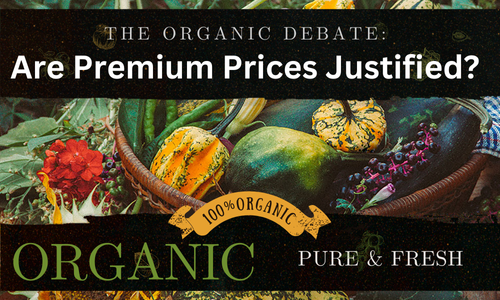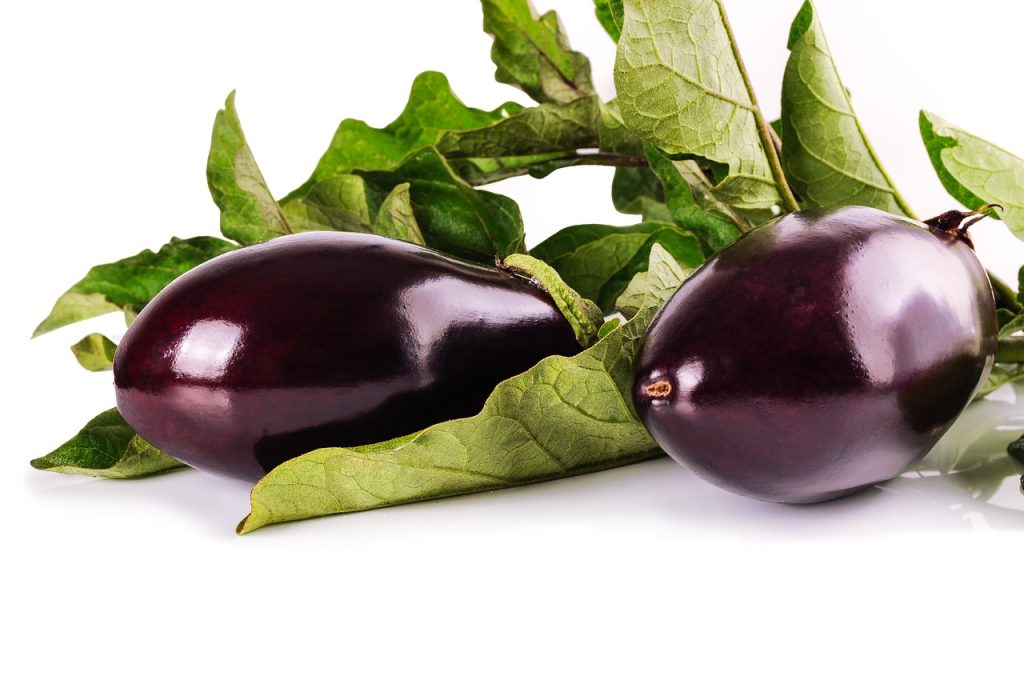This site may contain links to affiliate websites, and I may earn a commission for any purchases made through those links at no additional cost to you.

Organic Foods: Weighing the Costs, Benefits, and Health Impact
Organic Foods: Weighing the Costs, Benefits, and Health Impact
The Organic Debate: Are Premium Prices Justified?
Organic foods have gained popularity in recent years, but their higher cost often raises questions about their value. Let’s explore the pros and cons of choosing organic, along with the potential health benefits and key considerations.
Pros of Organic Foods
1. Reduced pesticide exposure: Organic farming practices limit the use of synthetic pesticides, potentially lowering your intake of harmful chemicals.
2. Environmental benefits: Organic farming methods promote biodiversity and soil health, contributing to more sustainable agriculture.
3. Nutrient density: Some studies suggest organic produce may contain higher levels of certain nutrients, though results are mixed.
4. Animal welfare: Organic livestock practices often prioritize better living conditions for animals.
Cons of Organic Foods
1. Higher cost: Organic products typically come with a premium price tag, which can strain budgets.
2.Shorter shelf life: Without certain preservatives, organic foods may spoil more quickly.
3. Limited availability: Some organic options may not be as readily available as conventional counterparts.
4. Lower yields: Organic farming often produces less food per acre, potentially requiring more land for agriculture.
Health Benefits: Why Organic May Be Good for Your Body
1. Reduced pesticide exposure: Lower pesticide residues may decrease potential health risks associated with chemical exposure.
2. Potential cancer risk reduction: A 2018 study suggested that high organic food consumption might be linked to lower cancer risk, though more research is needed.
3. Antibiotic resistance: Organic meat and dairy come from animals raised without routine antibiotic use, potentially helping combat antibiotic resistance.
4. Nutritional benefits: Some organic foods may offer slightly higher levels of certain nutrients, such as antioxidants in fruits and omega-3 fatty acids in milk and meat.
Key Facts and Tips
1. Prioritize the “Dirty Dozen: Focus on buying organic versions of produce most likely to retain pesticide residues, such as strawberries, spinach, and apples.

Here’s the list of the Dirty Dozen:
Strawberries, spinach, kale, collard greens, mustard greens, grapes, peaches, pears, nectarines, apples, bell peppers, hot peppers, cherries, blueberries, green beans.
2. Consider the “Clean Fifteen: Save money by purchasing conventional versions of produce with naturally low pesticide residues, like avocados, sweet corn, and pineapples.

Here’s the list of the Clean Fifteen organic foods:
Avocados, sweet corn, pineapples, frozen sweet peas, onions, papayas, eggplants, asparagus, kiwis, cabbages, cauliflower, cantaloupes, broccoli, mushrooms, honeydew melons.
3. Look beyond the label: “Organic” doesn’t automatically mean healthier, especially for processed foods.
4. Wash all produce: Proper washing can help reduce pesticide residues on both organic and conventional produce.
5. Balance your choices: If budget is a concern, prioritize eating a variety of fruits and vegetables, whether organic or conventional, as the health benefits outweigh the risks of pesticide exposure.
By understanding the pros and cons of organic foods and their potential health impacts, you can make informed decisions about incorporating them into your diet based on your priorities and budget.
Conclusion: Making Informed Choices About Organic Foods
The decision to buy organic foods ultimately depends on personal priorities, health concerns, and budget constraints. While organic products offer potential benefits in terms of reduced pesticide exposure, environmental sustainability, and possibly higher nutrient content, they come at a premium price that may not be feasible for everyone.
Key Takeaways:
1. Balance is key: Incorporate organic options where they matter most to you, such as for frequently consumed items or those on the “Dirty Dozen” list.
2. Health first: Remember that a diet rich in fruits and vegetables, whether organic or conventional, is crucial for overall health.
3. Stay informed: Keep up with current research on organic foods and their impacts on health and the environment.
4. Budget wisely: If cost is a concern, prioritize organic purchases and supplement with conventional options to maintain a diverse, nutritious diet.
5. Consider alternatives: Explore local farmers’ markets or community-supported agriculture programs for fresh, potentially lower-cost alternatives to store-bought organic products.
By weighing the pros and cons, understanding the potential health benefits, and considering your personal circumstances, you can make informed decisions about incorporating organic foods into your lifestyle. Remember, the most important factor is maintaining a balanced, nutrient-rich diet that supports your overall health and well-being.
Disclaimer:The content on this website is for informational purposes only and is not a substitute for professional medical advice, diagnosis, or treatment. Always consult your physician or a qualified healthcare provider with any health-related questions. Do not disregard professional advice or delay seeking it due to information found on this site.




